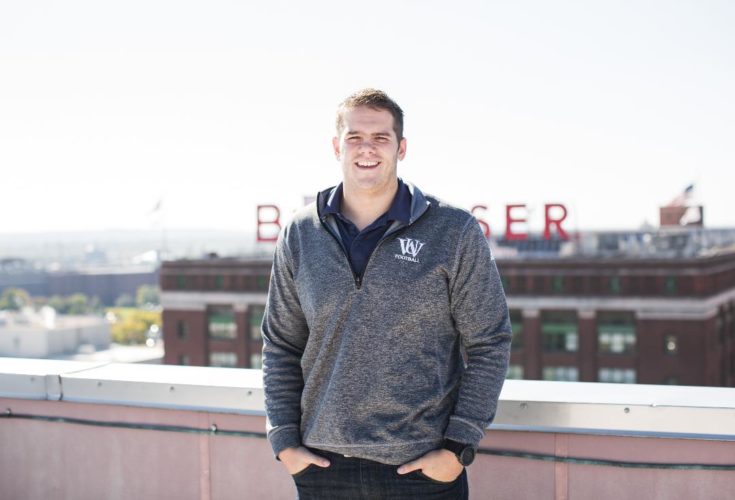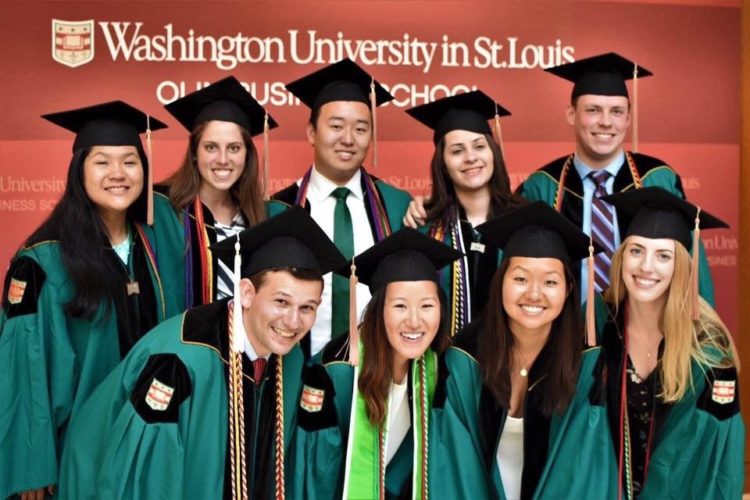Part of a series of Q&As with Olin alumni. Today we hear from Shannon Turner, MBA ’18.
What are you doing for work now, and how did your Olin education impact your career?
After graduating from Olin, I created the Maria Lida Foundation, a nonprofit organization that promotes economic development in Alausi, Ecuador, through tourism, education and training programs. Alausi is near and dear to my heart because it is where my father and his family lived before immigrating to the United States.
My time at Olin gave me tools and resources to pursue my dream of using my education to give back to my roots. I started my business school education with a passion for social entrepreneurship and Olin had many class opportunities in this space.
Olin also provided me with incredible experiential opportunities such as building my idea in classes, serving on the board of a local nonprofit organization, working on a consulting project for clients in Ecuador, and helping a local social enterprise grow. These opportunities helped be build the confidence and skill set to launch my own enterprise after graduating.
What Olin course, ‘defining moment’ or faculty influenced your life most, and why?
Olin’s introduction to entrepreneurship course with Cliff Holekamp influenced my career path the most. It was wonderful to connect with classmates over our passion for entrepreneurship and learn from entrepreneurs in the St. Louis community.
In this class, I was able to pitch my social venture idea, receive feedback, and work on a feasibility study to explore my idea with classmates. The advice and support I received from Cliff Holekamp were tremendous in helping me craft my social venture.

How do you stay engaged with Olin or your Olin classmates and friends?
The Olin community has been enormously supportive of my career path post-graduation. Last fall, I became a client for Olin’s Center for Experiential Learning International Impact Initiative. The CEL’s International Impact Initiative provides business school students with opportunities to work on consulting projects for global social enterprises.
Through this partnership, Olin MBA students helped the Maria Lida Foundation create business strategies for growth and were able to visit Alausi, Ecuador, to see the work Maria Lida Foundation is doing on the ground. This project would not have occurred without support from Daniel Bentle and Amy VanEssendelft, who are leaders in the CEL program (editor’s note: Daniel Bentle left Olin for another opportunity in mid-April).
As a result of this project, the Maria Lida Foundation received excellent recommendations on how to grow its operations. In addition, the CEL team’s faculty adviser (and my former professor), Hillary Anger Elfenbein, is now a member of Maria Lida Foundation’s Board of Directors.
Why is a business education important?
A business education is important because it gives you the skill set needed to successfully enter the business world. Before my time at Olin, I worked in the legal field for many years so it was incredibly helpful to learn the foundations of business through business school classes. It is also important because it provides you with many opportunities to expand your network, gain mentors, mentor others and learn from new experiences.

Looking back, what advice would you give current Olin students?
I would recommend that current Olin students focus their time and energy on things they are passionate about during their time in business school. Olin provides many opportunities for students to participate in various activities and events (something that makes Olin special).
However, you have limited time in business school, so I think it is helpful to spend your time on things that you enjoy. I’m very passionate about using business skills for social impact and entrepreneurship, so I spent time taking entrepreneurship courses, attending networking events for entrepreneurs, participating in social impact and entrepreneurship clubs, serving on a local nonprofit board, and applying to be on student consulting teams for social ventures.
These activities helped me to enjoy my time in business school, meet many people with similar interests, gain mentors, obtain skills, and prepare me for my post-MBA career.
Pictured at top: Olin CEL team working on the ground in Alausi, Ecuador for the Maria Lida Foundation. Shannon is in the red coat.






